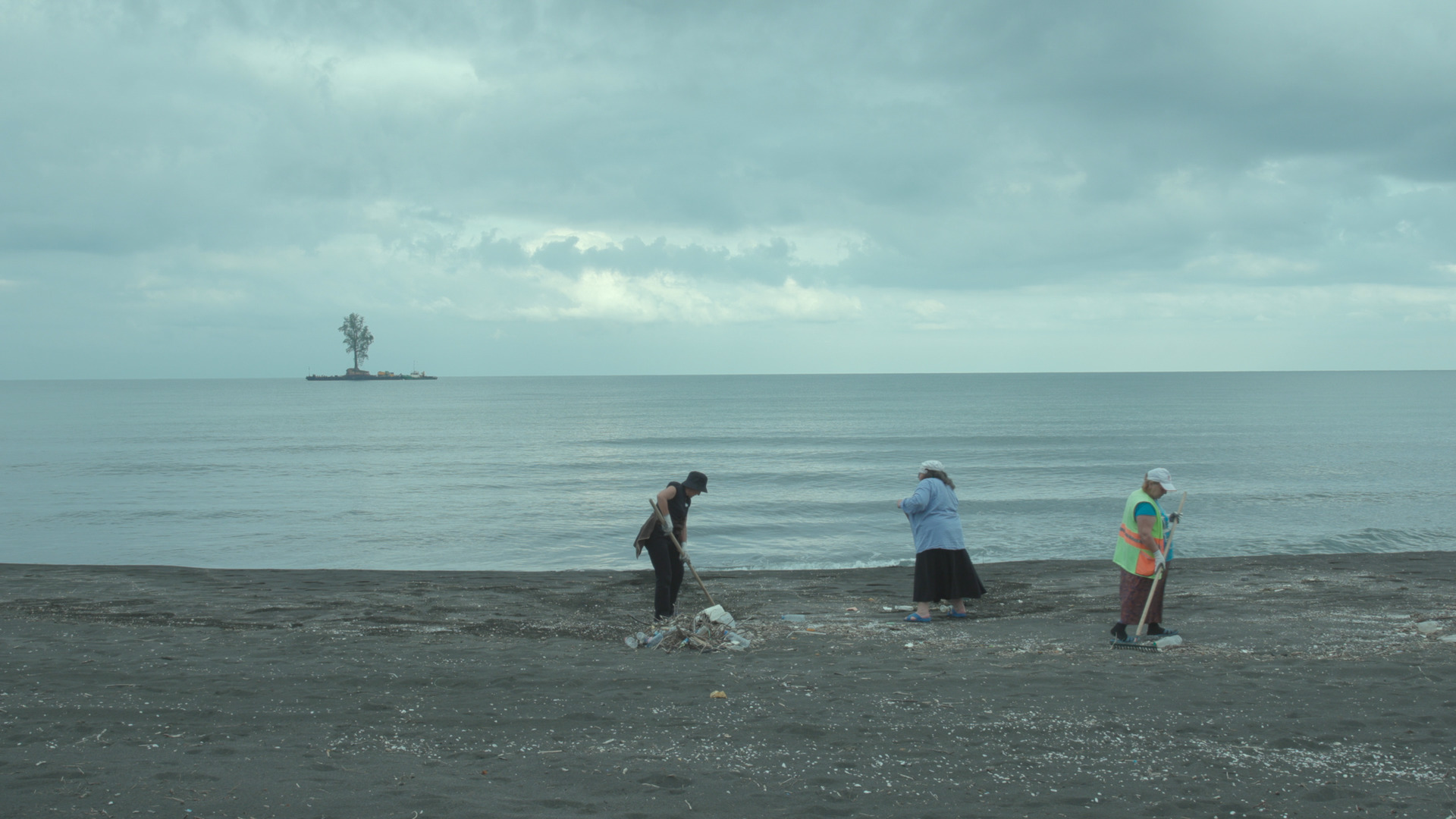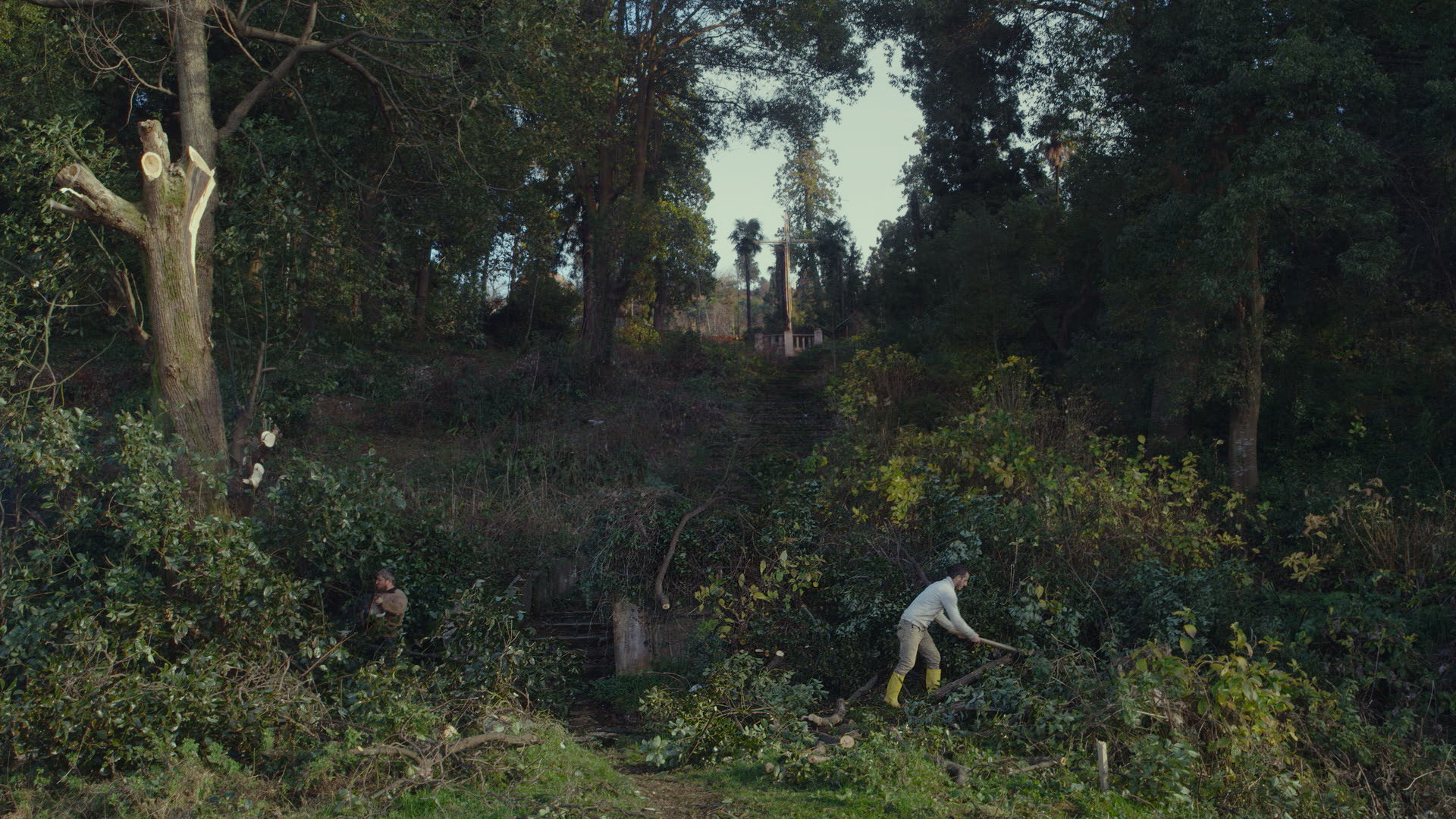Minimalist Style and Political Anxiety. Taming the Garden // Verzió X ELTE

The filmmaker is never present; she does not interact with her subjects. According to a 2021 interview from the Berlinale Film Festival, Jashi preferred to only communicate fragments of the information, “certain elements of the puzzle” in her films. She thinks that the story only comes together in the mind of each individual viewer. The whole of the story should be understood with the help of, and extended by the viewers’ own experiences. In the same interview she says that the most challenging part of the shooting was to gain the trust of the villagers, and to convince them about the crew’s and the film’s political neutrality.
In my view the minimalist style of the film supports this unbiasedness, this sensitively formed perspective. The film does not try to communicate its message harshly or with a well-predefined point of view. It does not try to convince the audience about an idea, it just presents facts, which can be used to form a unique perspective. This style suits the setting and the political atmosphere of the film, and the people presented in it. The villagers and the workers who are the characters of the film, are politically anxious, because Bidzina Ivanishvili, the man who collects the century old trees in his private arboretum was the prime minister of Georgia, still is its shadow ruler.

Taming the Garden
According to Jashi, the people did not want to open up about the uprooting and the moving of the trees, because they felt that it is too closely connected to the political situation. So, by speaking about the trees, they would be indirectly speaking about the political unfairness present in the country. The distant, impersonal style of the film can also be understood as a direct consequence of the distancing of the characters. As most of them hesitate to express their opinions, we rarely see emotions expressed, and the film keeps a distance from them. The film shows how a culture of political taboos is inherited from the Soviet era of Georgia. People do not talk freely about highly ranked political figures, which is the sign of a fragile democracy according to Jashi.
An interesting aspect of the film, which is emphasized in another interview with the director, is that the men are more non-committal; they are more reserved about the trees and their political background. Women at the same time are more open about their feelings and their grief. They express emotions about the trees being moved, and they verbalize their thoughts about the political aspect of it, too. This could be the foundation of an eco-feminist interpretation. In these traditionalist societies men “have more to lose”, they have to protect their status, and they also “try to have more comfort in what is existing”, as Jashi puts it in the interview. So, they are less likely to try to do something against the power of other men.

Taming the Garden
By looking at these traits, and by taking into account Bill Nichols’s documentary modes, we can see that this film can be mostly categorized as an observational documentary, but I would argue that it has some features that are closer to the poetic mode. While it has no stylistic connection to the modernist avant-garde movements, it operates with some very aesthetic shots. The scene, in which the workers talk in a dimly lit interior, is objective, but it has an atmosphere of uncertainty. Leaving the figures in darkness is an aesthetic choice that gravitates toward a more poetic way of expression. Many of the shots try to create an atmosphere rather than to communicate direct information about the given situation (for example the foliage of the trees in the dark, lit by flashlights or the lights of machines, and the audio dominated by the squeaking and rumbling of engines). The last scene of the garden features music in a way that accentuates an ironic and poetic attitude. These scenes thus gently shift away from the traditional observatory mode of documentary filmmaking.
Barnabás Kiss
ELTE Film Studies student